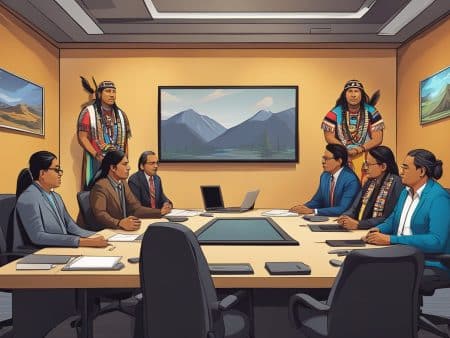A triumphant air surrounds Canadian tennis as they gear up to defend their hard-earned Davis Cup title. Having tasted victory in Spain last year after an arduous wait of 109 years, the Canadian contingent is upbeat, raring to create magic again on the court.
The man steering the ship, Coach Frank Dancevic, brims with renewed confidence. “It was really important for us to win the Davis Cup,” he expressed, underlining the weight of last year’s monumental achievement. “I think that until you actually do it, it’s difficult to believe that it can be done. But now that we’ve done it, we know that it’s possible for us.” Dancevic’s sentiment isn’t just the optimism of a seasoned coach but also resonates with the collective aspirations of a nation that waited more than a century for this crowning glory.
Spanning 14 years as a player for Canada in the Davis Cup, Dancevic’s experience offers a rich tapestry of highs and lows, making him an ideal mentor. He has opted to bring back most of the champions from the title-winning squad, signaling trust and stability. However, the absence of world No. 15 Felix Auger-Aliassime, the star of the previous season, casts a notable shadow. But even without Felix, Canada’s line-up is formidable: Denis Shapovalov (No. 26), Vasek Pospisil (192), Gabriel Diallo (159), and Alexis Galarneau (200) are all set to represent their nation.
Despite injury concerns that forced him to miss the U.S. Open, Shapovalov, hailing from Richmond Hill, Ontario, is keen on participating in the group stages scheduled in Italy, reflecting his commitment to the cause. Dancevic confirmed this, emphasizing the player’s determination and zeal.
The road ahead isn’t easy. Their campaign kickstarts against the home team, Italy, a formidable challenge in itself, followed by Sweden and Chile on subsequent days. Each of these matchups promises thrilling tennis, underscoring the competitive nature of the Davis Cup.
Beyond the individual brilliance of players, what truly makes the Davis Cup unique is its embodiment of national pride and unity. It isn’t just about solo performances; it’s about coming together as a cohesive unit. Dancevic, a native of Niagara Falls, Ontario, stressed this very essence. He believes that the Davis Cup allows athletes to play for something much grander than personal accolades – the pride of representing an entire nation.
Recalling the pivotal moments from the last championship, Dancevic shared, “The whole team has to come together at the right time to win the entire thing. And it was really a magical moment when Felix won that match point and we won the entire thing.” The jubilation that followed Auger-Aliassime’s match-winning point against Australia’s Alex de Minaur last November is still fresh in their minds.
Capturing those euphoric moments post-victory, Dancevic narrated how the team withdrew to the locker room, absorbing the enormity of their achievement. “We couldn’t believe it for a long time. We were just really happy and celebrating,” he fondly reminisced.
But victory, especially in a tournament as unpredictable and challenging as the Davis Cup, is fleeting. Celebrations must be brief, as the next challenge always looms large. The gravity of their achievement wasn’t lost on Dancevic. “It really is a miracle for everybody to come together as a team,” he mused. Emphasizing the teamwork behind the scenes, he highlighted the relentless effort of the support staff. “You can imagine it’s just a lot of work, right? It’s a lot of work from the whole team to get these guys firing.”
As Canada embarks on another Davis Cup journey, it’s evident that the echoes of their historic win are still resounding. Armed with experience, unity, and a steely determination to defend their title, the Canadian squad looks set to carve out another memorable chapter in their nation’s tennis legacy. The encore, as they say, has just begun.





